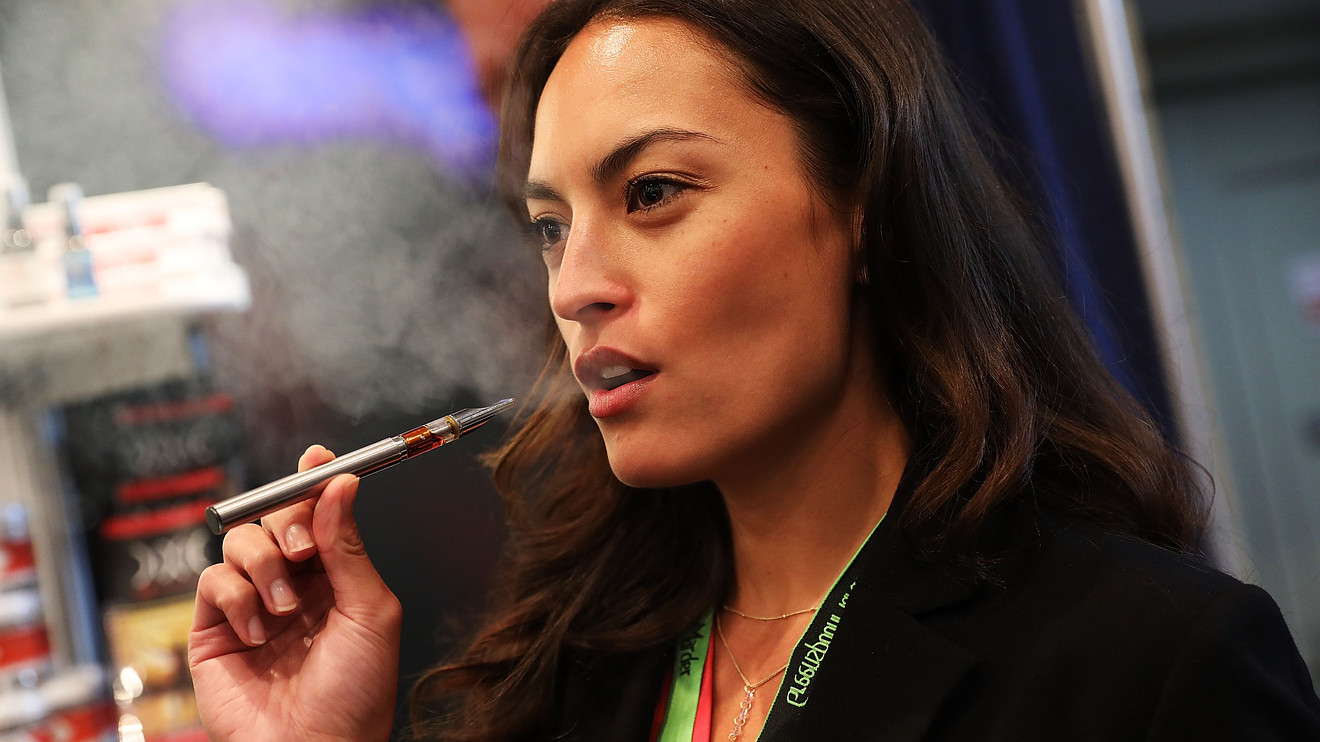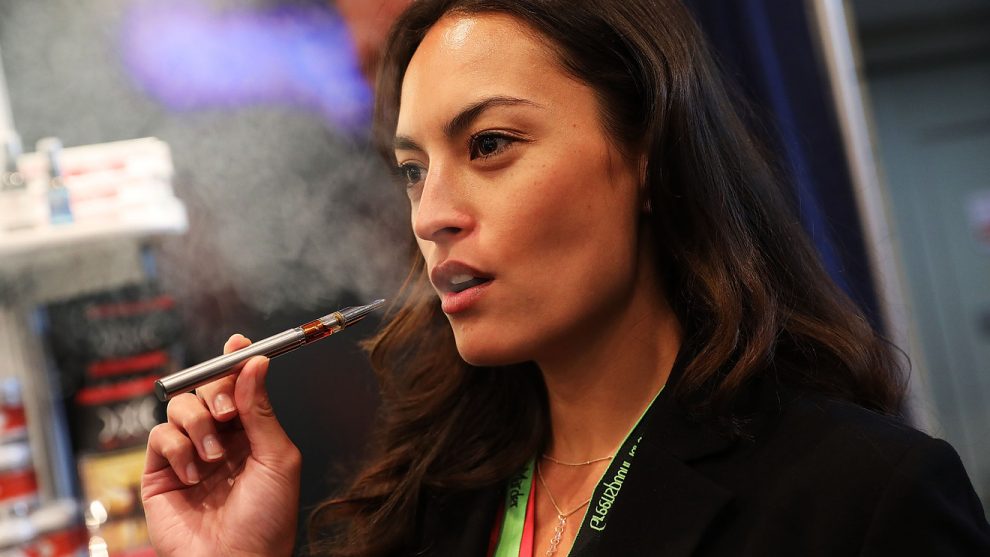
Federal regulators cautioned three companies to stop making their “unsubstantiated advertising claims” on all the alleged benefits of CBD products, ranging from oils to soft gels to gummies.
The joint warning letters from the Food & Drug Administration and the Federal Trade Commission urged the three companies to rethink how they presented their products online and in social media posts. The warning letters were dated March 28, but announced Tuesday.
Outgoing FDA Commissioner Scott Gottlieb said the trio asserted “unfounded, egregious claims about their products’ ability to limit, treat or cure cancer, neurodegenerative conditions, autoimmune diseases, opioid use disorder, and other serious diseases, without sufficient evidence and the legally required FDA approval.”
According to the letters, the sites made all sorts of claims about serious conditions including Alzheimer’s and cancer. One letter was sent to Relievus, a pain management practice with patients in New Jersey and Pennsylvania. In one statement on the company’s website, which has since been removed, Relievus said “CBD successfully stopped cancer cells in multiple different cervical cancer varieties.”
The FDA said they made egregious claims about their products’ ability to treat or cure cancer, neurodegenerative conditions, opioid abuse, autoimmune diseases and other diseases.
Ronald Saltiel, Relievus’ chief operating officer, told MarketWatch he took down the link and wanted to follow FDA rules. At the same time, he stressed the practice’s doctors and nurse practitioners were trying to help people cope with pain without using opioids. They’ve had “nothing but positive results” with CBD, Saltiel said.
“We want to be in clinical compliance,” Saltiel said. “We disagree with some of their positions.” He said he was surprised that Relievus got a letter when plenty of other places also offered CBD products. “We’re not unique, trust me, we’re not.”
Requests for comment to the other two companies — Nutra Pure and PotNetwork Holdings — were not immediately returned.
Cannabidiol, or CBD, is a non-intoxicating cannabis derivative. It’s become a booming multi-million dollar business that’s getting mixed into everything from jelly beans to coffee and pet products. The pharmacy giant CVS CVS, +0.17% made news last month when it said it would sell CBD products in about 800 stores, and gym chains including SoulCycle peddle CBD as a pain reliever.
CBD can be found in one FDA-approved drug to treat people with epilepsy, but there’s little scientific evidence to back its support for other things like insomnia, chronic pain, depression and anxiety or, indeed, cancer.
The CBD surge is happening even with the additive in a hazy legal spot.
The 2018 farm bill said hemp was no longer deemed an illegal substance. But the bill said the FDA still had the power to regulate cannabis and its derivatives. Gottlieb said any products claiming CBD therapeutic benefits needed FDA approval for their intended use before going to market.
CBD is a non-intoxicating cannabis derivative. It’s become a booming multi-million dollar business that’s getting mixed into everything from jelly beans to coffee and pet products.
Until that time, Gottlieb said it was “unlawful” to sell food with CBD into interstate commerce, or to market it as a dietary supplement.”
And then there’s the soup of state laws on CBD and marijuana use. More than 30 states have medical marijuana laws in place and roughly 10 of those have legalized full adult marijuana use.
The FDA has previously cautioned other CBD purveyors about their claims, but the three recent letters are the first since the recent farm bill, and are the first time both the FDA and FTC have teamed up to warn about how CBD products are presented to consumers.
Mary Engle, associate director of the FTC’s Advertising Practices Division, said the commission was “always concerned about advertising claims affecting consumers’ health or safety, and is particularly concerned about products purporting to treat serious diseases such as Alzheimer’s and cancer. Regardless of the type of product, marketers must have solid science to back up their claims that a product can improve people’s health. Under FTC law, CBD products are no different.”
The feds aren’t the only government officials grappling with CBD use. New York City health officials have also ordered restaurants not to sell CBD-infused products. Meanwhile, Louisiana officials also recently said that, for the time being, they’ll give citations to retailers selling CBD products. At the same time, a new Maine law will allow CBD’s inclusion in food.
The FDA will hold a May 31 public hearing for more information about CBD.
Paul Armentano, deputy director of NORML, an advocacy group pushing for consumer access to safe, affordable marijuana, noted the FDA has taken action for years on CBD-infused products.
Armentano didn’t comment on the three latest warning letters, but said his organization “has been on record calling for greater regulatory oversight of these mass-marketed products, many of which are entirely unregulated and of varying quality.”
Get a daily roundup of the top reads in personal finance delivered to your inbox. Subscribe to MarketWatch’s free Personal Finance Daily newsletter. Sign up here.








